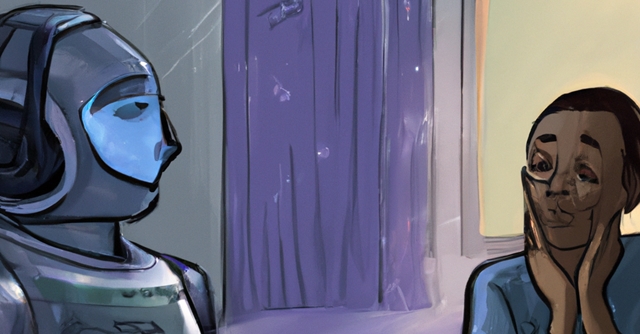
What's driving popularity of AI 'therapist' bots


An employee at the ChatGPT-creator OpenAI recently said, “Never tried therapy before but this is probably it?” This is a part of the tweet made by Lilian Weng, who is also the head of safety systems, on September 26, where she referred to a ‘quite emotional, personal conversation’ she had with ChatGPT. This tweet was made just a day after OpenAI unveiled support for voice and image-based prompts for generative artificial intelligence-based chatbot.
Responding to Weng’s tweet, Ilya Sutskever, OpenAI’s cofounder and chief scientist, said that in the future when ‘our models’ become more robust, they will give rise to ‘wildly effective’ and ‘dirt-cheap’ AI therapy. This tweet shone a spotlight on the hotly debated topic of using AI for mental health and wellbeing caregiving and therapy.
The Indian Council of Medical Research (ICMR) released ethical guidelines on the application of AI in healthcare in March. The document notes that AI psychology and psychiatry models can assist patients in self-care and ensure optimal mental and behavioural health. On AI chatbots, the guidelines suggest looking at them as initial assistance for people who may be inhibited from seeking professional help and to augment interactions with professionals and peers.

Unburdening human mental health workers
Bengaluru and Boston-headquartered healthtech startup Wysa is one of the names in the AI-assisted mental healthcare space, claiming to have served 6.5 million people in over 90 countries. The company raised $20 million in a Series B funding round in July 2022. Wysa’s AI chatbot is fed with ‘clinical psychologist-prescribed’ responses to specific queries by users. Ramakant Vempati, the founder of Wysa says that it is an adjunct to psychological support.
“Wysa’s AI chatbot is auditable and explainable. We have insurance companies and public health agencies as some of our clients for whom these factors are of paramount importance. This is also the reason we have not introduced generative AI capabilities which is still a black box,” he added.

Started in 2011 as a wellness platform for corporate employees, Bengaluru-based Truworth Wellness started a guided wellness program for mental health in 2015. “By 2021, we started utilising AI-based interface for what we call an initial touch point. The anonymity guaranteed by such chatbots helps people open up while the underlying AI algorithms analyse the conversation for preliminary diagnosis. The report is then relayed to a trained psychologist who then takes over from that step,” said Rohit Chohan, CEO and co-founder of the firm. Chohan claims that this has freed up psychologists’ time to attend more people. Each psychologist, who was earlier dealing with about eight people a day, can now handle 13-14 of them.
Moving with caution
Globally, there is an acute shortage of trained psychologists and mental health professionals, with the demand and supply gap being more pronounced in a developing country like India. Notably, in a written reply the Minister of State for Health and Family Welfare, Satya Pal Singh Baghel informed Rajya Sabha in August that India has just 3,372 clinical psychologists registered with the Rehabilitation Council of India (RCI). Amidst such a huge demand-supply gap, many, like OpenAI’s Weng have begun turning to these AI chatbots for support. Factors like low to no cost, and easy and round-the-clock access have only added to the popularity of AI ‘therapist’ bots.

The scope of AI as a technology in the mental health space is huge, but the people building the solutions or the specific problem they are targeting are not right, said Jayanth Kolla, co-founder and partner at Convergence Catalyst, a Bengaluru-based tech consultancy. “My point is that there's a lot of space that AI can cover in the middle in the coping and the languishing space, even before trying to get to the extremes, which is therapy and counselling.” He also added that mental health professionals and experts themselves should lead this development as opposed to the technologists.
Echoing similar thoughts, Aravind Raj, additional professor of psychiatric social work at the National Institute of Mental Health and Neurosciences (Nimhans) said that the institute has received several research proposals in this field, the most recent being a voice modulation-based system to diagnose depression: “Their (technologists) curiosity is understood but we try to assess whether they understand mental health as well as they understand technology.”
Bengaluru-based counselling psychologist Mili Chakraborty calls these AI therapist chatbots ‘first-aid kits’, calling it helpful in cases where access to a human psychologist immediately may not be possible. “That said, we as psychologists do not want the patient to be dependent on us for life-long, hence there is a certain weaning-off process that is involved. With AI chatbots, I am not sure what that process looks like.” Chakraborty also added that accountability is another major factor to consider.

